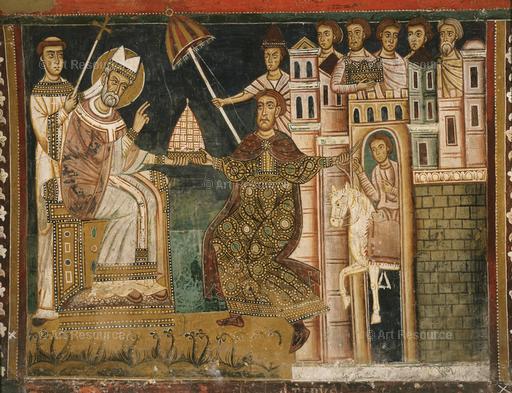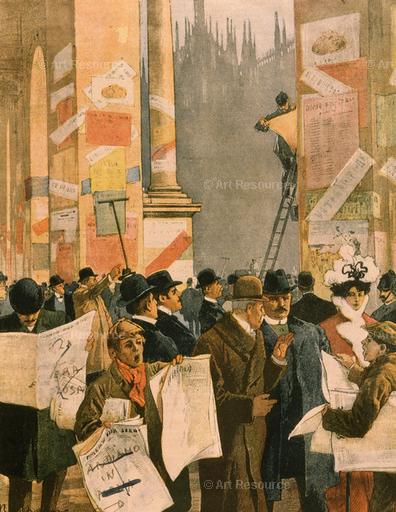You do not have to read between the lines of this morning’s broadcast from Chiesa to see an analogy emerge between Pope Francis and Hillary Clinton, an enthusiastic trafficker in influence. Chiesa‘s headline runs: “Welcome Wealthy. Francis Receives Them With Open Arms.” These are not ordinary people of means. They are political players buying leverage and prestige from a pope who sees himself a player among principalities and powers.
Hillary was her husband’s bagman back in Arkansas and has been selling access ever since. Pope Francis’ willingness to grant audiences and accept grandiose gifts from megadonors—politicians, international bureaucrats, CEOs of global enterprises, and celebrity spokesmen for political agendas— ought to be a cause of concern. The Church is not enhanced by papal participation in influence peddling.
Below, the Chiesa post in its entirety:

ROME, March 11, 2016 – Pope Francis is relentless against the rich gluttons who famish the poor Lazaruses, against what he calls the “economy that kills.”
And yet the richest men of the world and the moguls of high finance throng to be received by him. And he not only welcomes them with open arms, but he showers them with praise.
The latest to benefit from the pope’s appreciation was Christine Lagarde, received at the Vatican last January 18, who was reconfirmed in February as head of the International Monetary Fund and in early March was praised by Francis as “an intelligent woman who maintains that money must be at the service of humanity, and not the other way around,” in front of a group of stunned socialist French Catholics.
At the beginning of his pontificate Jorge Mario Bergoglio had surprised everyone, preaching a Church “poor and for the poor,” and at the same time calling in to advise the Vatican the most famous and expensive finance and management firms in the world, from McKinsey to Ernst & Young, from Promontory to KPMG.
But now the tune has changed. It is no longer the Vatican coffers that are paying the bills of these corporations, it is the great impresarios admitted to speak with the pope who are making him the offer of lavish donations.
There are those who don’t talk about it and those who do. Tim Cook, CEO of Apple, made no mystery of having handed a contribution to Francis (see photo) during the audience that like others of its kind took place not in the prosaic residence of Santa Marta, but in the solemn papal library of the Apostolic Palace.
And on January 28 Leonardo Di Caprio did the same. In the video of the meeting he can be seen giving the pope an envelope with a check “for works of charity close to your heart.” More than as a film actor, Di Caprio had obtained an audience as the head of a foundation against global warming, in the name of which he had spoken a few days earlier at the World Economic Forum in Davos, where he received an award.
Pope Francis had also made his voice heard at the Forum in Davos, with a message in defense of creation and for an “integral” development of man. And to Di Caprio, as to many others, he gave a red-bound copy of his encyclical “Laudato Si’.”
Nature and technocracy, this is the winning combination. Seven days before the audience with Tim Cook of Apple, Pope Bergoglio received the chief of Google, Eric Schmidt, accompanied by the head of Google Ideas, Jared Cohen, they too with a foundation engaged on the fronts of poverty, energy, and the environment, whose imperative is “Don’t be evil.”
And at the end of February he received Kevin Systrom, founder and CEO of Instagram, the photo-based social network with 400 million users worldwide. Also in February, Pope Francis met with a delegation of the World Wildlife Fund for Nature, headed by global president Yolanda Kakabadse.
But the biggest coup in this area was the film “son et lumière,” projected on the evening of December 8, the opening day of the Jubilee of Mercy, on the facade and dome of Saint Peter’s Basilica, a highly controversial film, a hymn to nature without the slightest reference to the Creator, and also very expensive but entirely offered to the pope by the World Bank, the Okeanos foundation, and Vulcan Inc. of Microsoft co-founder Paul Allen.
And Francis just narrowly missed receiving in audience Bill Gates himself, the absolute top dog of Microsoft, in addition to being the richest man in the world according to the Forbes ranking. The proposal was shot down by a pair of African cardinals, who reminded the pope that the Bill & Melinda Gates Foundation is highly active in promoting abortion in poor countries.
No objection, however, to the man in the second spot on the Forbes list, the Mexican Carlos Slim, a telecommunications magnate. The broadcasts and press centers for Francis’s journey to Mexico last February were entirely paid for by him.

Billionaire Carlos Slim is the top shareholder in The New York Times. Let the implications of that sink in. And while it penetrates, remember Goebbels’ intuition:
The finest kind of propaganda is that which works invisibly, penetrating into every cell of life in such a way that the public has no idea of the aims of the propagandists.
Do your homework. Joseph Stiglitz’s criticism of the IMF is here. More on mission creep at the IMF since its founding in 1944 is here. In 2012, Der Spiegel published an extensive article on the World Wildlife Fund, considered the most powerful environmental organization on the planet.
Lavish donations come with expectations that the price of them will be repaid, in one form or another. Francis’ highly politicized posture of engagement with the kings of the earth negates the one commission that is authentically his: to keep all nations mindful that God alone is absolute and essential.


